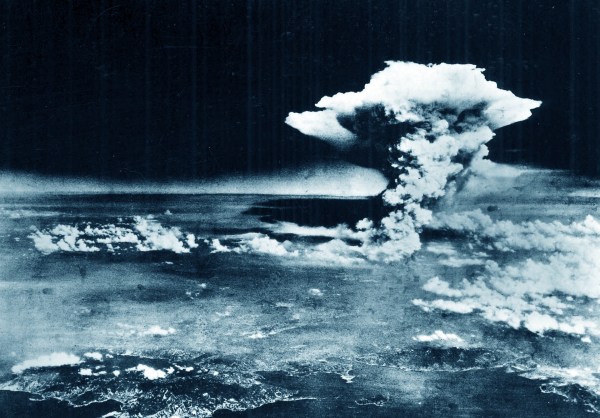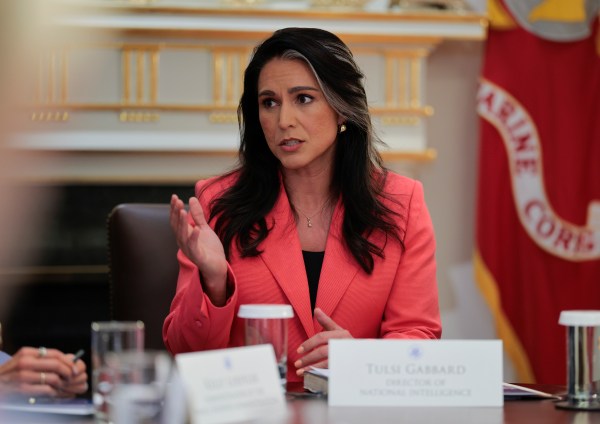At the beginning of every month, a different Dispatch staffer fields questions from members and compiles his or her answers in a mailbag a few weeks later. This month, it was Morning Dispatch reporter Mary Trimble’s turn. To ensure you’re able to submit questions for March’s mailbag, click below to become a full Dispatch member.
Hi, Dispatch members! Thanks for all of your questions and for your continued support of the work we do here. In a particularly turbulent moment for the media industry, I’m grateful to work for a company like The Dispatch, and that’s only possible because of—to paraphrase PBS—readers like you.
With that schmaltzy opener out of the way, let’s jump into some questions! I couldn’t get to all of them, but I’ve grouped them by topic based on the things people seemed most curious about, so feel free to skip around if—for some reason—you don’t care to learn what the best Ronald Reagan movie is.
On Fantasy Football
I received just one (1) question—from Conner, cheers to you—about perhaps the most important piece of wisdom I have to impart: my fantasy football strategy. I’m sure the dearth of fantasy questions is simply because you didn’t want to crowd out Conner’s inquiry, which I think gets to the heart of the matter: “What is your strategy for winning your fantasy league on the first try??? [Editor’s note: Bonus points for the enthusiastic use of question marks.] Who was your 1st round pick and does your league have a punishment for the last-place team?”
In all seriousness, I have never followed the NFL closely. I am a college football person, cursed to love one of the most snakebitten teams in college sports, the Texas A&M Aggies. (Thanks, Dad—this will be our year, for real this time!) But this past fall, my buddies convinced me that joining their fantasy football league would be a good time. I put zero thought into the draft, besides seeking some advice from Steve Hayes (which I’m pretty sure I ignored). My strategy was as follows:
- Draft players whose names I recognized from their college days. I think Trevor Lawrence was my first pick, and I immediately snatched up De’Von Achane, who was a powerhouse in his days at A&M;
- Fill the rest of my roster with people who look, from their picture on the ESPN fantasy app, like they enjoy their job. This logic led me to snag Christian McCaffrey.
Turns out to have been a pretty good approach, since I did, in fact, win the league. I loved the constant discussion with my friends—we talked quite a bit about the burgeoning romance between a certain tight end and global superstar—and will certainly be a part of our league next year. The punishment for the loser was to read a book assigned by the winner and write a book report on it. I assigned Football for Dummies—though I’m still patiently waiting on the typed report.
On Life Overseas
Several commenters asked what took me overseas as a kid: I’m the proud daughter of a U.S. diplomat. We moved more times than I can count growing up and, before I turned 18, I had lived in six countries on three different continents. After I turned 18, I added France to that list.
Nicholas Knopf wondered how my time abroad affected my political perspective, and CSG In Boston asked for examples of experiences from places I’ve lived that expanded my worldview.
Every place I lived shaped me in ways I’ll likely never be able to fully express. Broadly speaking, I think living overseas instilled in me a healthy sense of humility, forcing me to walk daily in the knowledge that the world is a massive and extremely complex place, and so it’s probably best to be more curious than certain. I also grew up with a keen understanding of the power and privilege that comes with being a U.S. citizen—and extreme gratitude for that accident of birth— and of the role our country plays in global politics. I hope those insights help ground me in my work as a journalist.
As for an experience that “expanded my worldview,” there are countless. But one that’s always stuck with me is the memory of visiting the warehouse for the files of the Securitate, Romania’s communist-era secret police. The police state constantly surveilled its own citizens, collecting information and encouraging Romanians to inform on each other for such crimes as owning a Bible or a copy of Newsweek. Romanians overthrew the regime of Nicolae Ceaușescu in December 1989, and what remains of the Securitate archives today lives in a warehouse outside of Bucharest. Romanians are free to go and see what the Securitate knew about them, but in doing so, they could also discover, for example, that someone close to them had been informing on them.
I remember walking around the dank storehouse, winding between the endless shelves, seeing the piles of books it was a crime to possess, and hearing stories of people tattling on their teachers, neighbors, and coworkers. I’m still not sure whether, if I found myself in the shoes of hundreds of thousands of Romanians, I would want to read my file. But the image of the rows and rows and rows of shelves filled with reams of paper about innocent people hammered home the reality of life in a totalitarian state, and the lengths to which such regimes will go to control their citizens. It also left me feeling particularly grateful for the freedom I have in the U.S. and for the freedom that Romanians now enjoy in the post-communist era.
On a lighter note, Jesse Wick asked why I consider Brussels underrated—because “other than the fries, [he] found it kinda ‘meh.’”
I went to high school in Brussels, and it’s one of my favorite cities. It gets a bad rap because it is, in many ways, an administrative city—with bad weather and worse traffic. But the capital of Europe is also a rich melting pot of cultures in a country that is itself already politically and linguistically fascinating—Belgium, a country roughly the geographic size of Vermont, has seven parliaments and three official languages! The downtown area is the perfect size to walk around in a single day. If you like architecture, don’t miss Victor Horta’s mansion or a walking tour of his buildings—he pioneered the art nouveau style and designed a handful of beautiful structures around the city.
Skip the Manneken Pis (honestly I’m not sure why it’s famous) in favor of the Music Museum—or the Museé des Beaux-Arts—which features lots of paintings by René Magritte, one of my favorites and a native son. And my last point: What’s not to love about a country famous for chocolate, beer, french fries, and waffles? That is a people who know how to have a good time.
On Movies
CP asked how I discover good classic movies—“the old stuff, post-silent era but pre-1965”—and if there are any particularly good streaming services for them.
First, excellent framing CP, because that certainly describes what I consider “classic movies,” though I’m sure others would define the category differently. I first got into these movies as a young teenager thanks to my grandmother, who has a truly encyclopedic knowledge of the films of her youth. We can talk for hours about the movies we’ve seen and loved (she’s particularly fond of Westerns), and she often remembers better than I do who starred in them and the intricacies of the plot.
I took a wonderful class in college (thanks, Professor Knight) on the history of American cinema that exposed me to some of the greats, like the excellent I Am a Fugitive from a Chain Gang, and showed me how film has (and hasn’t) reflected America over the more than a century it’s been part of our popular culture. At various times in my life, I’ve had access to the Turner Classic Movies streaming service associated with a cable subscription—one of the best ways to get to old films—and I find such joy in jumping headlong into an 80-year-old movie knowing it could be simply mediocre or it could be the best movie I’ve ever seen. The only way to find out is to watch.
Cloudland and a couple of Jacks asked about my favorite actors, actresses, directors, and films. I’m a massive fan of Alfred Hitchcock’s films because they’re visually beautiful and creative without sacrificing watchability. I mean, what’s more enduring than a guy sitting in his apartment wondering why his neighbors are so weird—and hey, maybe one of them committed a murder! Some of my favorite actors were frequent Hitchcock stars—Cary Grant, Jimmy Stewart, Gregory Peck, and Ingrid Bergman. Beyond Hitch’s world, I love Barbara Stanwyck, Rosalind Russell, and Myrna Loy for their refreshing spunk. The classic His Girl Friday—starring Russell as a crack reporter and Grant as her high-strung editor who’s also her ex-husband—is an unrealistic yet endlessly hilarious journalism movie that ranks among my favorites. And we should not forget that the late President Ronald Reagan was an actor; I particularly love a solid B-movie of his, The Voice of the Turtle.
On Music
Thank you to the music buffs in the audience for weighing in on the definition of “New Americana” and “Stomp and Holler.” You did a better job at defining the genres than I could have. If I had to pin it down without Spotify’s so-niche-as-to-be-functionally-meaningless descriptors, I’d say my tastes probably lie at the intersection of folk, bluegrass, country, rock, and indie music, with occasional diversions down each of those musical cul-de-sacs. My gateway drug was The Lumineers, whose debut album was one of the first I truly loved and has definitely held up. They were also my first big arena concert.
From there, it was a slippery slope into the music of Dawes—a phenomenal rock band I’m excited to see play live, for the second time, in early March—plus, in no particular order, Lucius, Brandi Carlile, Lake Street Dive, Nathaniel Rateliff, Tedeschi Trucks Band, Madison Cunningham, Lukas Nelson, Sara Watkins (to answer Reesehopkins’ question), and I could go on. Finally, anyone who’s spent more than five minutes around me knows I love Jason Isbell’s music, almost without exception. Like many, I’m a sucker for a good guitar riff and some southern gothic lyrics.
Wilhelm asked for some songs that always make me hit “replay.” I could listen to the opening fiddle notes on the live recording of Isbell’s “The Life You Chose” 100 times and not tire of them. “Dusty Trails” by Lucius perfectly captures the striving of one’s early 20s. Paul Simon’s “Hearts and Bones” will almost always get a second listen, as will “Fire and Rain” by James Taylor. But that’s certainly not an exhaustive list.
On Journalism and The Morning Dispatch
Stacey.Sovereign asked who inspired me to become a journalist and who I still make a point to read today.
I spent a lot of time watching CNN International as a kid (see above), and I was absolutely captivated by the grit and intelligence of the female journalists I saw on the screen. Clarissa Ward and Hala Gorani were particular favorites, for their facility with languages, their fearlessness, and their grace. I was especially in awe of how they all seemed to know something about everything, which is a quality I deeply wanted to possess. It was perhaps no coincidence that it was sometime around the peak of my CNN International days that I began to consider a career in journalism. I’m not sure being a war correspondent like Ward or an anchor like Gorani is my path, but I hope I can always emulate their poise, wit, and courage.
As for who I read today: a lot of Nick Catoggio. I also enjoy reading Anne Applebaum and Derek Thompson at The Atlantic for their insights; Applebaum on populism and Thompson on our modern life. Unsurprisingly, I’m also a sucker for anything from our old friend David French.
Reesehopkins and JohnM asked how TMD comes together. I often have people ask if I’m nocturnal, working on a daily morning newsletter that publishes before 8 a.m. every day. Thankfully, no. Barring breaking news throwing a wrench in the works, we do our best to put a bow on it as early as we can the day before. Every day, the TMD crew hops on a call to check in on stories we’re working on and pick out the topics for the next few days. It’s a group brainstorming effort based on the hive mind of three people who consume a truly unbelievable amount of news. Sometimes the story to cover is obvious—the two-year anniversary of the war in Ukraine, for example. Other times, during blessedly slow news weeks, we reach for topics we call “evergreen”—worth explaining but sometimes hard to get to when the news cycle is moving particularly quickly. As for who cracks the jokes at the top of the newsletter, we rotate that responsibility, too. But if there’s one that you found particularly amusing, feel free to assume I wrote it.
Declan didn’t tell me to do this, and nobody asked, but I’ll tell you what I love about writing TMD. I’ve always been a generalist. Even in college, I found it difficult to pick one thing to be interested in, which is probably why I got a degree studying … the history, languages, culture, and politics of the entire continent of Europe. Working on TMD is a job designed in a lab for the perpetually curious. Every day I learn something new and get to talk to experts in their field, soaking up as much knowledge as I can to share it with our readers. As a writer, I love that we’re free to add some levity and poke fun where appropriate—frankly, I think it helps keep us all sane.







Please note that we at The Dispatch hold ourselves, our work, and our commenters to a higher standard than other places on the internet. We welcome comments that foster genuine debate or discussion—including comments critical of us or our work—but responses that include ad hominem attacks on fellow Dispatch members or are intended to stoke fear and anger may be moderated.
With your membership, you only have the ability to comment on The Morning Dispatch articles. Consider upgrading to join the conversation everywhere.